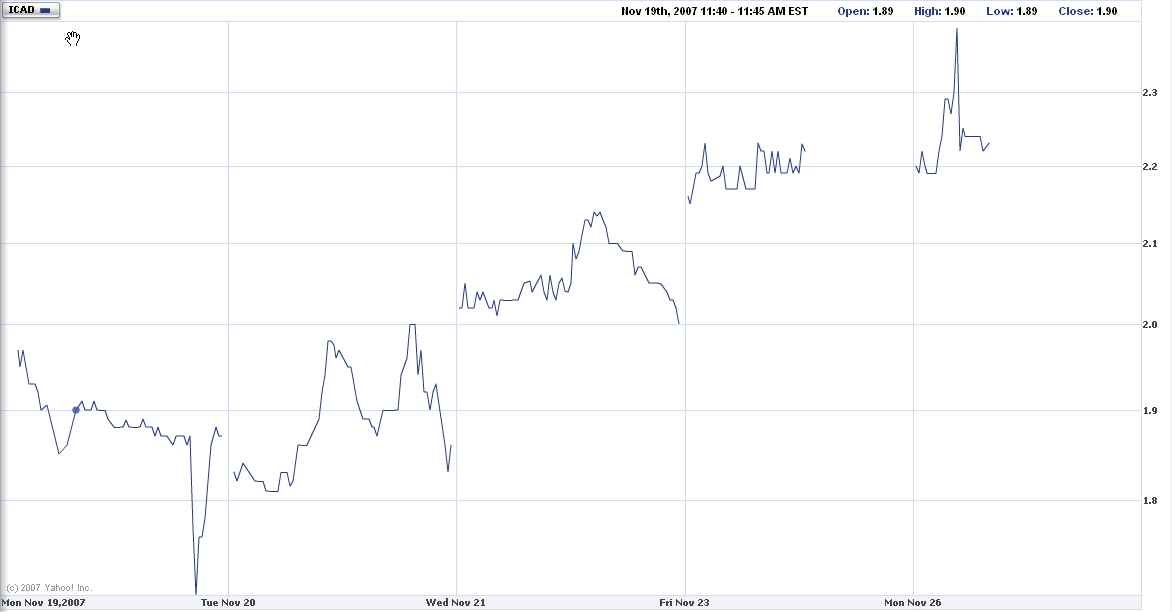Last week GE Healthcare announced would it would be incorporating iCAD’s SecondLook technology into its line of Senographe Full-Field Digital mammography systems. iCAD shares opened 10% higher on the news; shares have continued to climb to a high of $2.39 today.
SecondLook is a computer aided detection (CAD) technology that helps distinguish cancers from other anomalies in the breast. SecondLook is able to detect up to 72% of actionable missed cancers an average of 15 months earlier. The software integrates seamlessly with DICOM systems – a standard adopted by most medical digital imaging device manufacturers. iCAD will develop a customized version of iCAD’s SecondLook for GE.
GE hopes the partnership will enhance the overall clinical performance of Senographe and Seno Advantage systems – by improving sensitivity to breast cancer imaging, enhancing usability and workflow and by providing diagnostic support tools to radiologists.
“In an effort to provide leading solutions for our customers, GE has selected iCAD as our development partner for digital mammography CAD solutions,” said David Caumartin, general manager of global mammography for GE Healthcare. “iCAD’s currently available revision of SecondLook Digital works well with GE’s complete line of Senographe FFDM systems and Seno Advantage Review Work Stations and will continue to be a key aspect to the company’s platform.”
GE is no stranger to such partnerships, having employed R2 Technology’s ImageChecker technology in the past. In randomized trials, the use of the ImageChecker resulted in the detection of 7.4% percent to 19.5% percent more cancers. R2 was acquired by Hologic – which offers its own line of digital mammography equipment – in July 2006.
According to the Business Journal, GE’s diagnostic medical equipment business has grown to more than 50 percent market share worldwide – and grew 5% in 2006 alone. US demand for medical imaging products will grow six percent annually through 2010, this according to The Freedonia Group. Growth is driven by technological advances, aging demographics and changing health care policy.
